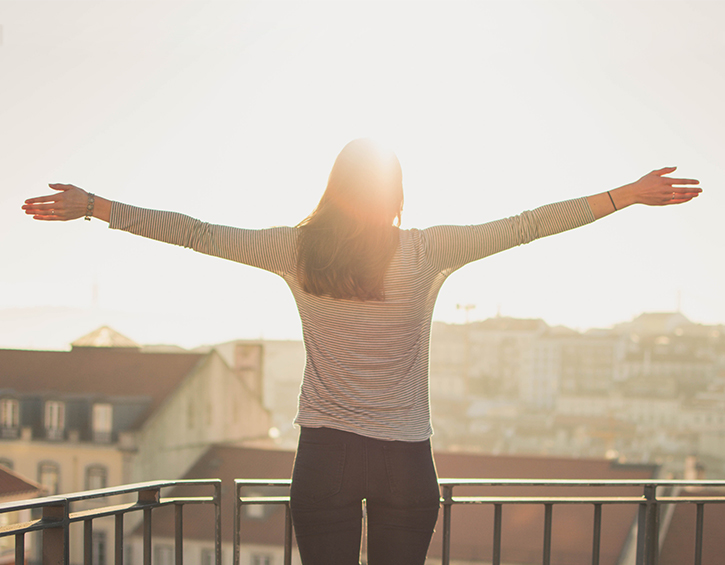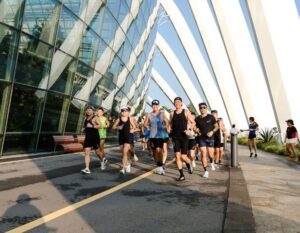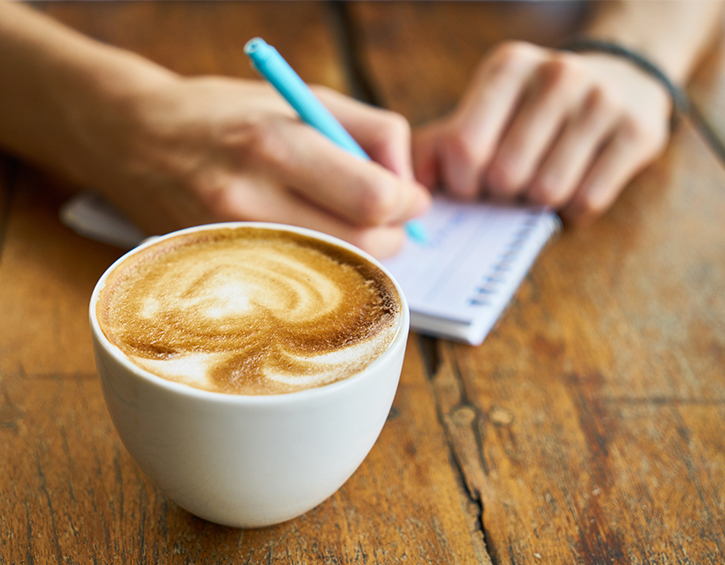
Can’t stay awake in the day, can’t sleep at night?
We have all been there. “Don’t talk to me till I’ve had my morning cuppa” is something we could have framed on our wall. If you need coffee to start your day and feel sluggish in the afternoon before another necessary coffee hit to get you into action, then it is likely you are overly dependent on the stimulant drug that is caffeine. On the flip side, caffeine could be inhibiting you getting your best sleep at night – and so the cycle starts again.
So, how else can you stay alert without hitting the black stuff? Dr Hui Voon Loo from Complete Healthcare International (CHI) has some handy tips:
1. Take an afternoon power nap! Studies have shown napping between 5-25 minutes, five to six hours before bedtime can be beneficial to recharge and is actually better than caffeine to get over the midday slump. Keep it short though, longer naps may give you give post-sleep grogginess, and upset your regular sleep time. If you cant nap, even closing your eyes for about 10 minutes or so may help.
2. Get active – walking pumps oxygen to your brain, veins, and muscles. A brisk walk for about 10 minutes could increase energy for up to 2 hours and it’s a great way to destress at work. A study involving 6800 participants has shown exercise increases energy, improves sleep quality, and reduces daytime fatigue. Exercise improves the oxygen uptake by the muscles and brain as well as increases endorphins. These neurotransmitters help to relieve stress and increases the feelings of euphoria. Aim to exercise 30 minutes a day.
3. Eat a nutritious snack – high sugar hits from processed food will give an energy boost, followed by a sudden drop in energy due to the crash in blood sugar. Consider eating healthy snacks that are high in fat and packed with nutrients. A handful of nuts, fruits, carrot or celery sticks with hummus, roasted chickpeas, avocado or a boiled egg. Limiting the amount of white carbohydrate at lunchtime could help to curb the afternoon/post lunch slump too.

4. Get some sun – sunlight has a direct impact on our hypothalamus which regulates our circadian rhythm. Exposure to sunlight during the day helps you to sleep better at night. A study conducted in the Brigham and Women’s hospital showed, in particular, blue light seems to be able to increase alertness during the day and sunlight is the ideal source. Another reason to take that post lunch walk around the block plus you’ll get your daily dose of vitamin D too!
5. Breathing/Mindfulness – deep breathing improves blood oxygen level. It lowers the heart rate, improves circulation, calms down the mind and ultimately improves mental performance and energy. Deep breathing involves the movement of the abdomen and diaphragm, not the chest. Your mind must be consciously aware of your breathing movement coupled with the movement of the abdomen. It could be easily done while you are at your desk or on your commute to work and is a great stress buster. Another breathing technique called stimulating breath involves quick inhalation and exhalation through nose with your mouth shut but relaxed. It is used in yoga to give quick energy boosts.
6. Hydrate! Thirst is one of the last signs of dehydration so drink water throughout the day. Studies have shown even a 1-2% loss of water would cause fatigue and confusion.

7. Swap caffeine for herbal teas – Liquorice root tea and Siberian ginseng, ashwagandha and rhodiola teas may help to boost energy by supporting the adrenals. Green tea contains caffeine but at a lesser amount. In addition, it has L-theanine, which has anti-anxiety effect by increasing the inhibitory neurotransmitter GABA and dopamine. It also acts synergistically with caffeine in improving brain performance.
Read about Getting Better Sleep for Kids here
Tips to Get Better Sleep
- Turn off your electrical devices an hour before bed (TV, phone, computer)
- Keep all electronics away from the bed (don’t charge your devices next to you as they still give off rays).
- Keep the room dark (use black out blinds)
- Try relaxation techniques before going to sleep (breathing as above), or try meditation.
Ultimately, the ideal approach to addressing any tiredness during the day and sleep problems would be looking at the underlying reason of your fatigue. Is your sleep quality good? Are you coping well with your stress? Are you eating well? Trying to find the root cause and addressing it would be the best way to curb the constant craving for caffeine.






 View All
View All





 View All
View All










 View All
View All





![[𝗛𝗢𝗧 𝗡𝗘𝗪𝗦] 𝗦𝗲𝗻𝗴𝗸𝗮𝗻𝗴 𝗦𝘄𝗶𝗺𝗺𝗶𝗻𝗴 𝗖𝗼𝗺𝗽𝗹𝗲𝘅 𝗶𝘀 𝗕𝗔𝗖𝗞 𝘄𝗶𝘁𝗵 𝗡𝗘𝗪 𝗦𝗟𝗜𝗗𝗘𝗦 & 𝗙𝗘𝗔𝗧𝗨𝗥𝗘𝗦! 💦🔥
One of the most popular pools in the North-East is finally back and it’s even better than before! Brand-new slides for thrill-seekers (1.2m+), splash zones for little ones, a Jacuzzi, sheltered teaching pool, and an Olympic-sized pool for serious swimmers.
Say goodbye to the rainbow slides as the new ones are faster, wider & way more fun! Just remember: proper swimwear only, and no accessories for max sliding speed.
𝗪𝗵𝗲𝗿𝗲: 57 Anchorvale Rd, Singapore 544964 (5 mins from Sengkang LRT)
𝗪𝗵𝗲𝗻: Tues/Thurs/Sat: 6.30am – 9.30pm | Wed/Fri/Sun: 8am – 9.30pm | Mon: Closed
𝗛𝗼𝘄 𝗺𝘂𝗰𝗵: Family of 4 (weekend) = Just $7!
Tag your splash squad & get ready for a wave of fun! 🏄♂️
.
.
.
.
.
.
.
#SengkangSwimmingComplex #SGPools #FamilyFunSG #WaterPlaySG #NorthEastLiving #SengkangReopens #KidsActivitiesSG #SengkangFun #publicswimmingpool](https://www.sassymamasg.com/wp-content/plugins/instagram-feed/img/placeholder.png)
